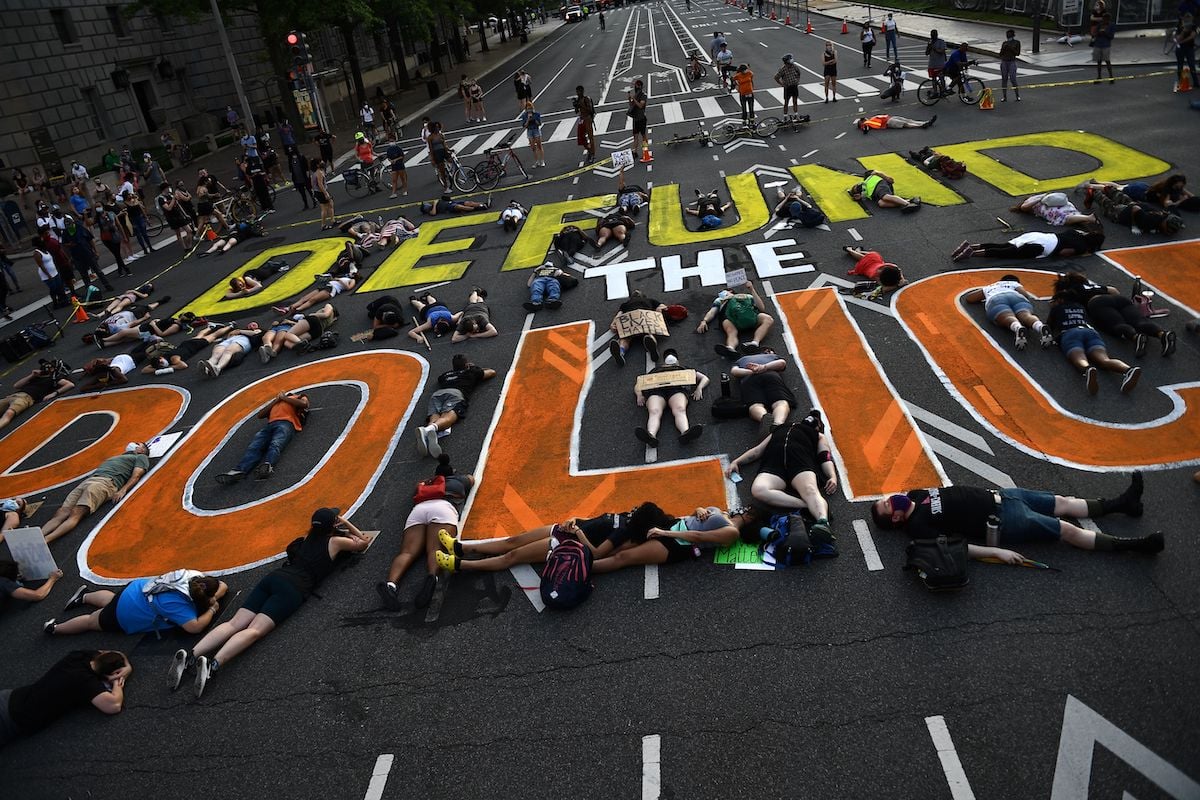After weeks of protests sparked by the murder of George Floyd, the Minneapolis city council has announced that they will “begin the process of ending the Minneapolis Police Department and creating a new transformative model for cultivating safety in our city.”
This is an incredible, momentous step. It’s not yet clear what a replacement for the police will look like but that’s why the council calls it a process. “We recognize that we don’t have all the answers about what a police-free future looks like, but our community does,” they said in their statement, promising to listen and engage with that community.
Today, #Minneapolis City Council members formally announced their commitment to end the MPD and create a new transformative model of public safety.
Here is their statement: pic.twitter.com/0jAE8YKQjf
— Local Progress (@LocalProgress) June 7, 2020
This announcement comes as other leaders on all levels, from cities to federal government, are choosing to focus on police reform rather than dismantling. Minneapolis’s own mayor, Jacob Frey, was booed out of a protest rally in front of his home for refusing to commit to defunding the police. Los Angeles’s mayor Eric Garcetti announced this weekend that $150 million of police funds would be reallocated for community initiatives. New York’s Bill de Blasio also promised to cut funds from the city’s $6 billion police budget, although he wouldn’t give a number.
On the federal level, House and Senate Democrats unveiled new legislation Monday aimed at wide-ranging police reform.
NPR writes: “It would prohibit the use of chokeholds, lower legal standards to pursue criminal and civil penalties for police misconduct, and ban no-knock warrants in drug-related cases. The plan would also create a national registry to track police misconduct.”
That all sounds well and good, except that many cities across the country already have a lot of these policies implemented and yet the police still keep killing Black people. Corruption and violence are still rampant in those forces.
Minneapolis City Council President Lisa Bender admitted Sunday: “Our efforts at incremental reform have failed. Period.”
democrats, banning cops from doing chokeholds for the 15th time pic.twitter.com/qfV6hnDuK9
— Colin Spacetwinks (@spacetwinks) June 8, 2020
The major argument against police reform, as opposed to defunding and dismantling, is that you can’t reform an institution that was meant to be broken. The American police force and white supremacy have always been enmeshed, they’ve always been used to prop one another up. As John Oliver said in this weekend’s Last Week Tonight, if you find yourself wondering how we got to this place of police killing Black people in the streets, “we got here on purpose.”
On top of the racist foundation of the police, there are so many insurmountable obstacles to true reform. From police unions to qualified immunity, this system is a juggernaut designed to protect itself before it protects the rest of us.
And speaking of protecting the rest of us, how often do the police actually do that? All weekend on Twitter, people have been sharing their stories of just how little the police helped them when they reported crimes. And in terms of preventing crime, the ideas that the police have come up with for that–ideas like stop and frisk and “broken windows” policies–are more often than not rooted in a foundation of racism.
Bootlickers are like, “Oh yeah?? Who you gonna call when someone rapes you???” Like buddy I called the cops when I got assaulted and they said there was no evidence and they had no case and was I sure it wasn’t a misunderstanding.
— אַנטִפָא (@ilana_____) June 3, 2020
Again, Minneapolis doesn’t yet know what their future will look like. Calls for defunding the police mean different things to a lot of different people. For many, it means doing away with the police entirely and creating a new structure. To some others, it means massively scaling back on the existing framework and reallocating the majority of police funds to social workers, mental health professionals, and others whose presence isn’t actively harmful in most of the situations cops are currently called in for.
In his show, Oliver pushed back on the bad-faith argument put forth by people like Tucker Carlson and Donald Trump that the call to “defund the police” is the same thing as calling for the initiation of the Purge:
It means moving away from a narrow conception of public safety that relies on policing and punishment and investing in a community’s actual safety—things like stable housing, mental health services and community organizations.
The concept is that the role of the police can then significantly shrink because they are not responding to the homeless or to mental health calls or arresting children in schools or really any other situation where they best solution is not someone showing up with a gun—that’s the idea of defunding the police.
Hopefully more cities join with Minneapolis in admitting that incremental reform just isn’t enough and committing to real change. It’s long past due.
LITERALLY A WEEK AGO IF YOU SAID ABOLISH THE POLICE PEOPLE THOUGHT YOU WERE BEING AN UNREALISTIC EXTREMIST LMAO
PRISONS NEXT https://t.co/zqi1z5i9TL— DEFUND POLICE. ABOLISH POLICE. (@MichelleHux) June 7, 2020
(image: BRENDAN SMIALOWSKI/AFP via Getty Images)
Want more stories like this? Become a subscriber and support the site!
—The Mary Sue has a strict comment policy that forbids, but is not limited to, personal insults toward anyone, hate speech, and trolling.—










Published: Jun 8, 2020 03:06 pm